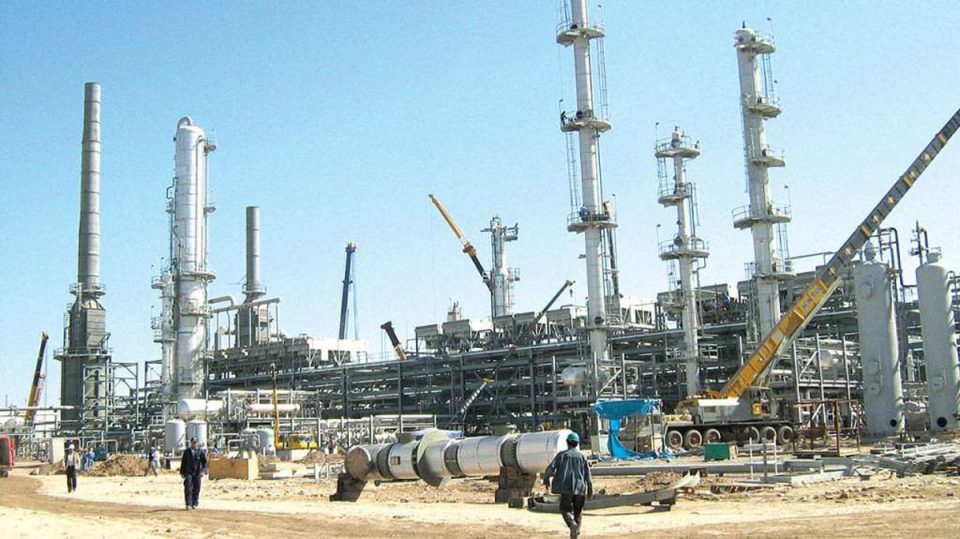Photo caption: Modular refinery
The Crude Oil Refiners Association of Nigeria has faulted the Technical Sub-Committee on the Crude and Refined Product Sales in Naira over the continued exclusion of modular and smaller local refiners from ongoing discussions on the naira-for-crude deal.
The association, which represents operators of modular refineries across the country, said contrary to claims by the technical committee that local refiners participated in the recent meeting of the naira-for-crude committee, none of its members were invited or represented, except the Dangote Petroleum Refinery.
The Publicity Secretary of CORAN, Eche Idoko, lamented the exclusion of its members during an exclusive interview with our correspondent.
Recall that the technical committee, in a statement released after its recent meeting and signed by the finance ministry’s Director of Information and Public Relations, Mohammed Manga, said the government’s drive to boost the naira through local sales of crude oil and refined petroleum products has recorded significant progress.
It said the meeting brought together key stakeholders, including, “the Special Adviser to the President on Energy, Ms Olu Verheijen; senior officials of the Nigerian National Petroleum Company Limited; local refining operators; and top representatives of regulatory agencies such as the Nigerian Midstream and Downstream Petroleum Regulatory Authority, the Nigerian Upstream Petroleum Regulatory Commission, and the Nigerian Ports Authority.”
Stakeholders were said to have reaffirmed their shared commitment to the effective and seamless execution of the policy, “which remains a critical component of President Bola Tinubu’s broader strategy” to strengthen the naira, enhance energy security, and promote local value addition within the sector.
But Idoko refuted this claim, stressing that several functional modular refineries, including those operated by OPAC, Edo Refinery, Walter Smith, Aradel, Duport, and other soon-to-launch facilities, were left out of the meeting and are yet to benefit from the initiative.
He expressed disappointment over the development, describing it as a deliberate sidelining of indigenous refiners who are critical to the success of the crude supply framework.
Idoko said, “We didn’t get any wind about that meeting, and like we have said, the technical committee had decided to deal exclusively with conversations around the local crude and supply of naira for crude.
“They are yet to include CORAN and modular refineries in the agreement. Only Dangote is still enjoying the benefit and was at the last meeting. None of the other refineries were invited. And the reportage that local refiners attended the meeting is misleading.
“The committee owes the President and Nigerians the duty to act fairly. It is very discouraging, to put it mildly, how those in the modular refining space are being treated. We want to appeal to the government and the committee to expand their reach.”
He emphasised that the recent meeting was the first since the government announced the continuation of the agreement, stressing that stakeholders were expecting broader inclusion of indigenous refiners going forward.
He added, “We would love to see the fallout after this technical committee meeting to see if it would be extended to include other modular refineries as intended from the beginning of the deal.
“We would want to hope that they expand it to include other refineries. We have OPAC, Edo Refineries, Walter Smith, Aradel, Duport, and the new entrants, which would be ready for operations by December.”
The Federal Government commenced the sale of crude oil and refined petroleum products in naira to local refineries on October 1, 2024, to allow local refiners access to domestic crude supply at a fixed price, paid in naira, to boost local refining capacity, save the country millions of dollars in petroleum products imports, and ultimately reduce pump prices.
At its initial pilot phase, which ended in March, the agreement permitted only the 650,000 barrels per day Dangote refinery as the sole beneficiary, with a promise to allow other crude refiners to become beneficiaries in its second phase.
On March 10, The PUNCH reported that the NNPC had halted the naira-for-crude deal until 2030, as the government-owned company has forward-sold all its crude oil.
Days later, the Dangote refinery said it had temporarily halted the sale of petroleum products in naira. However, on April 9, the Federal Government said the naira-for-crude oil deal will continue after the first phase, which ended on March 31.
When contacted, the Director of Press at the Ministry of Finance promised to respond to inquiries but had yet to do so as of the time of filing this report.
The Minister of Finance and Coordinating Minister of the Economy, Wale Edun, has promised to provide further updates on the naira-for-crude deal in due course.



